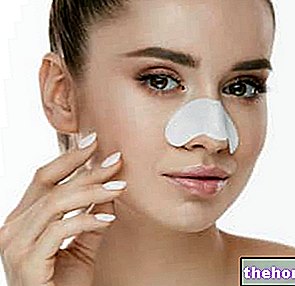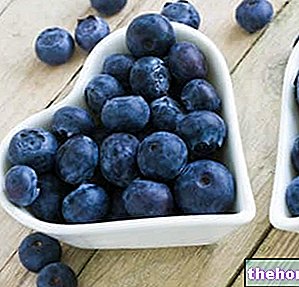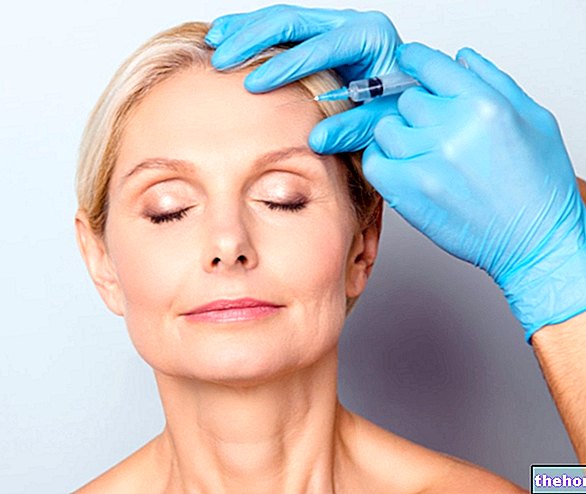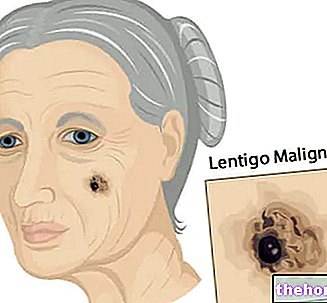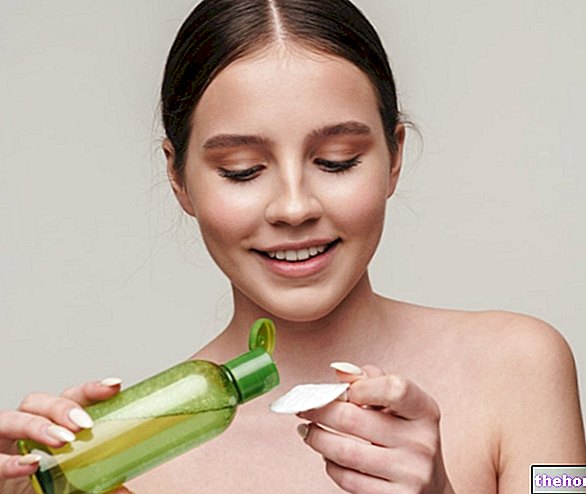Introduction
The phytotherapeutic world offers a certain variety of natural remedies derived from plants, designed to intervene not only on acne, but also on the factors that trigger it.

Effective natural remedies for acne must have anti-inflammatory, astringent, antiseptic and detoxifying properties in order to decrease skin impurities.
Causes and Natural Remedies
Even if you decide to resort to natural remedies to fight acne, the treatment cannot ignore the causes that triggered the acne manifestation.
Therefore, considering that the causes of acne are many and varied, the remedy will have to be targeted for that certain ailment.
For example, hepato-intestinal disorders can also be reflected in the skin through acne manifestation. In this regard, it is the duty of the specialist to direct the patient towards the most effective natural treatment to restore balance to the liver and intestine: choleretic-cholagogue, disinfectant and purifying drugs should be preferred.
Again, acne could be a consequence of hormonal disorders, puberty and menstruation: in this case, the use of medicinal plants with follicle-like action, designed to regulate the menstrual cycle, will be appropriate.
Furthermore, the psychological condition of the subject is also a probable trigger: tensions, worries, anxieties are perceived at the level of the adrenal glands, which respond with a "hyper-production of hormones (among all, cortisol). similar circumstances, as a natural remedy, the herbalist can recommend drugs whose active ingredients act as anxiolytics and calms the central nervous system. Consequently, the skin will suffer less from the stress to which the individual is subjected and it is likely that the acne will subside, until it disappears.
If the acne is a reflection of a food allergy, the most effective remedy is to eliminate the food from the diet: the allergy disappears, as does the acne.
Acne and Nutrition
Natural remedies, however, cannot cause a "net involution of acne" if the affected subject follows an unbalanced diet.
It is known, in fact, how much an individual's diet can affect the appearance and health of the skin. For this reason, it is of fundamental importance to adopt a correct and balanced diet, free from excesses, low in fatty foods and rich in sugars.
To all this, it is essential to associate an adequate degree of hydration which can be achieved and maintained by drinking at least two liters of water a day.
Behavioral precautions
Similarly to what has been said for nutrition, in the treatment of acne it is also important to adopt some behavioral precautions, in order to assist the action carried out by the natural remedies that we intend to use. In detail, if you suffer from acne, you need to:
- Avoid applying irritating cosmetic creams;
- Avoid the use of fatty substances on the skin, which can aggravate acne;
- Avoid breaking out blackheads, which can infect neighboring cells and potentiate acne;
- Do not continually rub the area affected by acne;
- Thoroughly cleanse the skin with non-aggressive products, taking care to completely remove any make-up.
Only if these simple precautions are respected, the use of natural remedies is appropriate: in herbal medicine you can find various natural preparations such as purifying herbal teas, syrups, elixirs, tablets and drops for internal use, or creams, ointments, gels, compresses or masks for a local application.
For an enhanced action, it is recommended to combine a product per os (orally) with a preparation with topical action.
Here are some models of effective natural remedies against acne, we will briefly analyze each herbal preparation to combat the acne manifestation.
Natural cream against acne
A herbal cream against acne should be spread on clean skin, possibly after a hot bath, as the pores of the skin are "prepared" to accommodate the natural remedy. Alternatively, before applying the natural remedy, it is possible to take baths of steam by placing the face in front of a container containing water previously brought to the boil. To prevent the steam from dispersing, it is also possible to cover the head with a towel. By doing so, the pores will open thanks to the heat of the steam and will be "ready" to receive the natural cream.
This cream is characterized by capillarotropic, vasoprotective, anti-inflammatory, astringent and soothing drugs. The main ingredients that can be included in the composition of a natural cream to fight acne will be illustrated below.
Burdock
The burdock (Arctium lappa) is probably the most suitable natural remedy for treating acne-related disorders. Burdock is defined as an "endocosmetic" because it promotes the correct physiology of the skin thanks to sesquiterpenes, polyacetylene sulphonated compounds, caffeylquinic acids (chlorogenic acid) and inulins, which promote purifying and decongestant activity. Burdock is also an excellent natural remedy formulated as an herbal tea, thanks to inulins, which determine diuretic activity; furthermore, burdock purifies the kidneys and liver due to the presence of germicidal substances. rich in mucilage that give the cream soothing properties, while the polyacetylenes present, on the other hand, promote antibacterial and antimicrobial activity.
Horse chestnut
The "horse chestnut extract" (Aesculus hippocastanum) is a natural remedy particularly suitable for the treatment of decongested, inflamed and acne-prone skin: the phytocomplex is made up of saponins, useful for stimulating micro-circulation. Horse chestnut improves the functionality of the capillaries, being capillarotrope and vasoconstrictor.
Hawthorn
Hawthorn (Crataegus monogyna) has a phytocomplex characterized by flavonoids (hyperoside, vitexin), procyanidins, catechins, phenolic acids, amines and triterpenes: the natural remedy is included in an anti-acne cream mainly for its anti-inflammatory properties.
Witch hazel
Even the "witch hazel (Hamamelis virgiliana) is used in the treatment of acne for its marked anti-inflammatory (it reduces inflammation), astringent, vasoconstricting and healing properties.
Aloe vera gel
Aloe vera gel is an excellent natural remedy for acne, as it promotes the anti-inflammatory, restorative and astringent action of the cream. Acne sufferers tend to scratch the affected skin: due to rubbing, the skin is torn, a small hemorrhage is created and a small crust forms: the aloe acts as a good cicatrizant.
A cream formulated with these drugs promotes the closure of enlarged pores, keeps the skin toned and protects it, creating a film that acts as a barrier against bacteria and environmental factors. The normalization of skin sebum production will also be favored.
Natural remedies internally
As mentioned, to obtain an enhanced action, to the external natural remedies to be applied directly on the skin (such as, for example, natural creams), it is possible to associate natural remedies to be taken orally, then internally. Among these, we remember :
- Dandelion (Taraxacum officinale): it is an excellent natural remedy designed for a product for internal use (opercoli). The dandelion is made up of lactone sesquiterpenes, phenylpropanes and phytosterols, which promote diuretic and purifying activity; moreover, it stimulates the glomerulus, thus keeping the renal activity active.
- Live lactic ferments (probiotics): live lactic ferments certainly represent an indispensable biotechnological remedy for the balance of intestinal bacterial flora. As we have analyzed, in fact, intestinal repercussions can also lead to the skin with the formation of acne. Consequently, probiotics are useful for the physiology of the bacterial population.
Clay mask
Periodically, even the clay masks (Bolus alba) are recommended because they are effective in purifying the skin of toxins and bacteria.
The ability of clay to incorporate impurities, taking them from the skin, is known. The clay must be mixed with water (perhaps by adding a glycolic extract of burdock, echinacea, artichoke or flue), until a sufficient mass is reached. solid. The clay has the ability to enrich the skin with trace elements such as silicon, iron, calcium, magnesium and aluminum and, at the same time, purify the skin.
The application of the mask must last for 15-20 minutes, in order to give the clay the necessary time to carry out its action. Generally, when the mask is removed with water, the skin appears very dry: in this regard it is advisable to apply a nourishing semi-greasy cream (preferably calendula cream).
Essential oils
Essential oils represent an interesting natural remedy against acne, to tone the skin and, above all, to disinfect it from acneic impurities. The essential oils of thyme, oregano and lemon act with a broad antibacterial spectrum, but also sage, the myrtle, geranium, bitter orange, bergamot, cedar and camphor are very effective remedies. Essential oils can be diluted in very little water and applied to the skin with a cotton swab, or added to creams, masks or light oils.
In this article we have reported only four simple different models of herbal preparations, to give an idea of how drugs can carry out their action to combat acne; on the market there are many other natural preparations, suitable for oily, acneic and impure skin. The herbalist or dermatologist will advise the patient on the most suitable natural remedy for his needs, in order to combat acne.
Other articles on "Acne: Natural Remedies"
- Acne - Acne treatment drugs
- Acne
- Acne homeopathy
- Acne: acne medications and treatments
- Diet and acne


